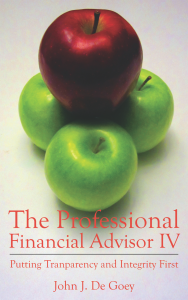Don’t fall for investment porn
Investors and advisors should focus on things within their control and tune out the noise of the daily financial news
Advertisement
Investors and advisors should focus on things within their control and tune out the noise of the daily financial news
 An excerpt from The Professional Financial Advisor IV (Insomniac Press), a guide that explores the complex relationship between investors and their advisors
The challenge for all advisors is to cut through the clutter and to get clients to focus on the things that are both important and within a client’s personal control. By the time anyone reads or even hears about financial news, it’s too late to act on it. If markets are indeed highly efficient, it means that by the time the information becomes available, larger, faster participants will have already analyzed the implications of the news and acted on it. If there’s news that interest rates have gone up unexpectedly, the bond market will reflect that new reality within seconds.
As such, calling your advisor the next morning to act on the “news” is like locking the barn door after the horse has left the stable. The industry has a term to describe the economic and political events that get people interested, even excited, but have virtually no real value: investment pornography.
People need to sort out for themselves whether or not it’s worth taking action on news items. Developments that are generally unimportant, but interesting grab financial headlines on most days. The information is usually nothing more than background noise in the busy hubbub of life for a person seeking financial independence. A large part of the role of an advisor is to act as a filter and to ensure that clients are not unduly swayed by headlines and sound bites. They rarely add up to anything. Investment pornography includes but is not limited to the following:
An excerpt from The Professional Financial Advisor IV (Insomniac Press), a guide that explores the complex relationship between investors and their advisors
The challenge for all advisors is to cut through the clutter and to get clients to focus on the things that are both important and within a client’s personal control. By the time anyone reads or even hears about financial news, it’s too late to act on it. If markets are indeed highly efficient, it means that by the time the information becomes available, larger, faster participants will have already analyzed the implications of the news and acted on it. If there’s news that interest rates have gone up unexpectedly, the bond market will reflect that new reality within seconds.
As such, calling your advisor the next morning to act on the “news” is like locking the barn door after the horse has left the stable. The industry has a term to describe the economic and political events that get people interested, even excited, but have virtually no real value: investment pornography.
People need to sort out for themselves whether or not it’s worth taking action on news items. Developments that are generally unimportant, but interesting grab financial headlines on most days. The information is usually nothing more than background noise in the busy hubbub of life for a person seeking financial independence. A large part of the role of an advisor is to act as a filter and to ensure that clients are not unduly swayed by headlines and sound bites. They rarely add up to anything. Investment pornography includes but is not limited to the following:
Share this article Share on Facebook Share on Twitter Share on Linkedin Share on Reddit Share on Email
Good luck